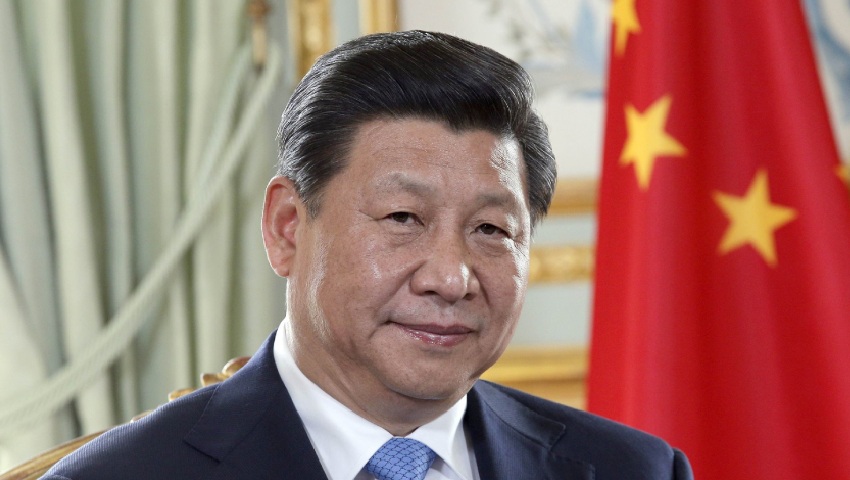The geopolitical stakes of a potential Russian invasion of Ukraine “couldn’t be higher” for China, according to one observer.
To continue reading the rest of this article, please log in.
Create free account to get unlimited news articles and more!
Earlier this month, Defence Connect delved into former US presidential candidate Patrick Buchanan’s reflections on the ongoing tensions along the Russia-Ukraine border, which many fear is a prelude to war.
Buchanan — who also served as White House communications director in the Reagan administration — suggested the US and its NATO allies have been preoccupied with Moscow, warning that a Western intervention in the Russia-Ukraine crisis would distract from a greater threat, China.
“Our great challenge in the 21st century is not Russia,” he writes.
“Indeed, in the long term, we want Russia on our side in the long struggle between the US and the West, and Communist China.
“What the US should do in this Ukrainian crisis is to avoid a war with Russia, avoid an escalation, and leave our adversary with an honourable avenue of retreat. Again, with Russia, time is on our side.”
According to Minxin Pei — professor of government at Claremont McKenna College and non-resident senior fellow at the German Marshall Fund of the United States — Buchanan’s concerns are justified.
Pei argues China has the most to gain from a Russian invasion of Ukraine and the subsequent response from the West.
“Beijing may be 6,500 kilometres from Kyiv, but the geopolitical stakes for China in the escalating crisis over Ukraine’s fate couldn’t be higher,” he writes.
“If Russia invades Ukraine and precipitates a drawn-out conflict with the United States and its Western allies (though a direct military confrontation is unlikely), China obviously stands to benefit.
“America will need to divert strategic resources to confront Russia, and its European allies will be even more reluctant to heed US entreaties to join its anti-China coalition.”
Conversely, a diplomatic resolution to the crisis — which would likely involve US President Joe Biden agreeing to a list of demands from Russian President Vladimir Putin — could deal China a strategic blow.
“While Putin will reap the benefits of his coercive diplomacy, and Biden will avoid a potential quagmire in Eastern Europe, China will find itself the sole focus of America’s national security strategy,” Pei continues.
“Worse still, after Putin has skilfully exploited the US obsession with China to re-establish Russia’s sphere of influence, the strategic value of his China card may depreciate significantly.”
For Putin, winning diplomatic concessions from the West could be more valuable than winning a military confrontation with Ukraine.
“Crippling Western sanctions and the high costs of fighting an insurgency in Ukraine would almost certainly weaken Russia significantly and make Putin himself both domestically unpopular and more dependent on Chinese President Xi Jinping,” Pei writes.
But he notes that despite the “high stakes” for China, Beijing has been “extremely careful” not to show its hand.
“While the heightened tensions dominate Western media headlines, Ukraine receives scant coverage in the official Chinese press,” he observes.
The People’s Daily, considered the official mouthpiece of the Chinese Communist Party, has published just one article about the crisis and is yet to voice Chinese support for Russia.
“Even more intriguingly, the summary of the Putin–Xi summit released by the Kremlin claimed that Xi supported Putin’s demand for Western security guarantees precluding NATO’s further eastward expansion, but the Chinese version, published by the official Xinhua news agency, contained no such reference,” Pei adds.
“Instead of explicitly endorsing Putin’s position, Xi’s statement was vague and general pabulum about ‘providing firm mutual support on issues involving each other’s core interests’.”
Further, Pei observes that following a meeting between Chinese Foreign Minister Wang Yi and US Secretary of State Antony Blinken on 27 January, Wang “planted China’s diplomatic stake squarely on the sidelines”.
According to Pei, China’s “reticence” suggests President Xi is “carefully hedging his bets.”
“To be sure, Putin’s aggressive diplomacy is serving Chinese interests, at least for now. Should he decide to invade Ukraine and divert US strategic focus away from China, so much the better,” he continues.
“But, assuming that Xi doesn’t know the Kremlin’s real intentions vis-à-vis Ukraine (it’s doubtful that Putin has shared them with his Chinese counterpart), he is prudent not to show his own cards either.
“Any expression of unequivocal Chinese support for Putin’s demands could leave China with little wiggle room.”
A Chinese attempt to “goad” Putin into war could be viewed by Moscow as a “diabolical Chinese plot” to use Russia as a “strategic pawn” in the Sino-American cold war.
“Alternatively, should Putin choose to pocket face-saving gains in order to avoid a potential disaster, China would look foolish for having backed the Kremlin’s unattainable demands,” Pei writes.
But Beijing knows explicit support for Putin would “almost certainly antagonise the European Union”— China’s second-largest trading partner.
“In Chinese policymakers’ strategic calculation, it is vital to prevent the US from recruiting the EU into its anti-China coalition,” he observes.
“Ukraine’s independence and security are crucial to the EU, and Chinese efforts to aid and abet Putin would trigger a European backlash. At a minimum, the EU could make China pay by restricting technology transfers and expressing more diplomatic support for Taiwan.”
Rather, Pei says he expects China to watch and wait for an opportunity to capitalise in the event of a confrontation.
“Its influence will increase dramatically only if Putin rolls the dice and invades Ukraine, because he will then need Chinese economic support to lessen the impact of Western sanctions,” he writes.
“But for now, all this is speculative as far as Xi is concerned. Although a superpower, China is temporarily reduced to being an onlooker, watching both anxiously and hopefully on the sidelines as the Ukraine crisis unfolds.”
Get involved with the discussion and let us know your thoughts on Australia’s future role and position in the Indo-Pacific region and what you would like to see from Australia's political leaders in terms of partisan and bipartisan agenda setting in the comments section below, or get in touch with
Charbel Kadib
News Editor – Defence and Security, Momentum Media
Prior to joining the defence and aerospace team in 2020, Charbel was news editor of The Adviser and Mortgage Business, where he covered developments in the banking and financial services sector for three years. Charbel has a keen interest in geopolitics and international relations, graduating from the University of Notre Dame with a double major in politics and journalism. Charbel has also completed internships with The Australian Department of Communications and the Arts and public relations agency Fifty Acres.

 Login
Login








